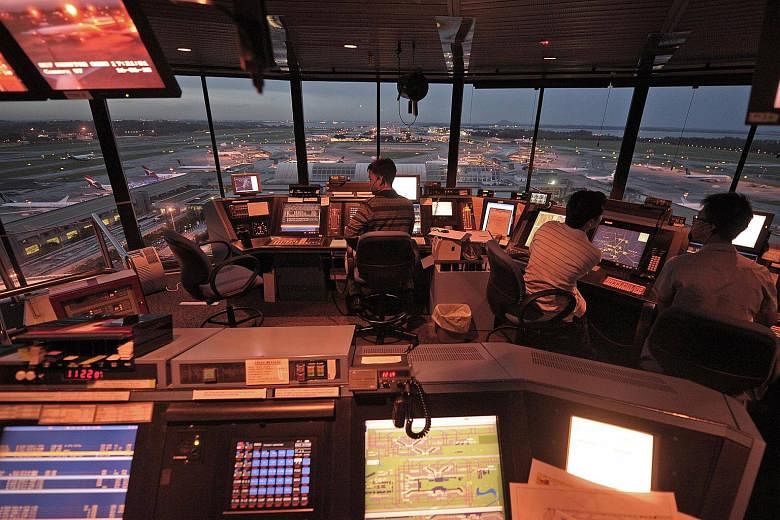A detailed study is being carried out on upcoming jobs in the growing aviation sector and the skills needed to perform them.
Singapore is preparing for air traffic to grow about 50 per cent to an estimated 80 million passengers a year, by 2025.
By then, air cargo volumes are also expected to increase by 1.3 times from 2015 to two million tonnes a year, according to SkillsFuture Singapore, a statutory board under the Ministry of Education.
The agency is working with the Civil Aviation Authority of Singapore - as part of a national initiative that will eventually cover 30 sectors - to update workers on career pathways, existing and emerging skills required, and training programmes for skills upgrading.
In a recent tender to appoint consultants for the study, expected to be completed in July, SkillsFuture Singapore stressed that there is a need to continue to strengthen and develop a skilled talent pool to address the demands of a growing aviation industry.
This is critical as Singapore aims to establish itself as a hub for global players seeking to tap opportunities offered by a rising Asian market, and for Asian enterprises looking to expand, the agency said.
Apart from skilled high-end jobs in the aerospace sector, Singapore will also need more air traffic controllers and flying crew.
From about 400 now, the Civil Aviation Authority of Singapore intends to grow the pool of air traffic controllers to about 600 by the end of the decade.
With Changi Airport Terminal 4 opening later this year and plans for T5 shaping up, there will be plenty of job opportunities in the sector, said Mr Ramanathan Mohandas, head of the diploma programme in aviation management at Republic Polytechnic.
"Based on the long-term outlook of the aviation and aerospace sector in Singapore, we expect to see more engineers, pilots and air traffic controllers being hired," he said.
Singapore needs first-rate air connectivity, said SkillsFuture Singapore.
"Superior connectivity has in turn enhanced Singapore's attractiveness as a global city in attracting high value-add investments and talent, creating a virtuous circle between air connectivity and economic growth," it added.
The study will cover all aspects of the air transport industry, from airport management and security to ground handling and engineering.
The sector contributes directly to 1.5 per cent of the country's gross domestic product and employs more than 30,000 people, seven in 10 of whom are Singaporeans or permanent residents.
To prepare for the future, government agencies are working closely with polytechnics and other institutes.
At Republic Polytechnic, which offers diplomas in aviation management, aerospace avionics and aerospace engineering, students are exposed to real work environments through internships that last between 20 and 25 weeks.
Mr Abbas Ismail, course manager for the diploma in aviation management and services at Temasek Polytechnic's School of Engineering, said the skills framework being mapped out will "help us to identify clear job titles, roles and demand so that the students and graduates will make better informed choices within the air transport sector".
To date, SkillsFuture Singapore has launched three frameworks for the hotel and accommodation services, early childhood care and education, and precision engineering sectors.


